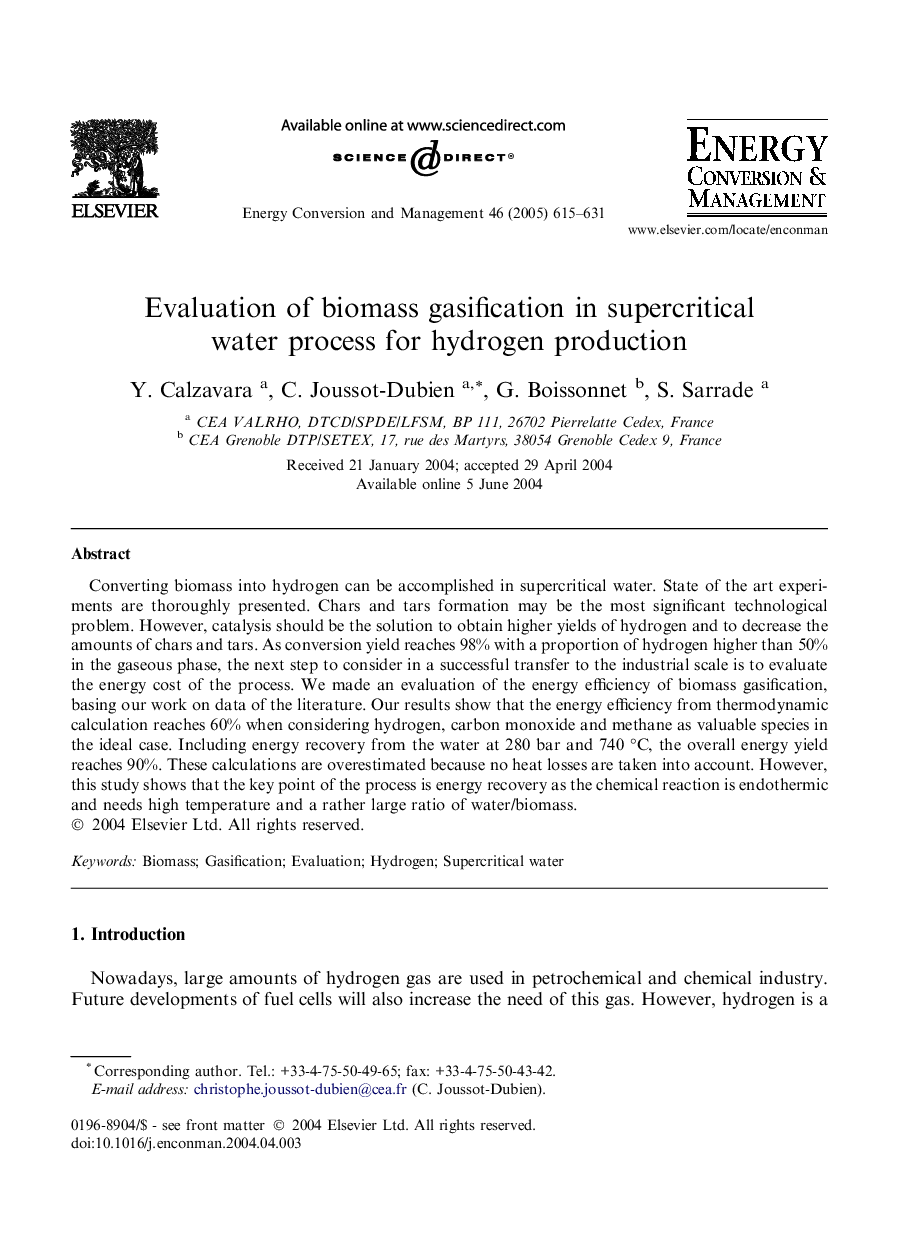| Article ID | Journal | Published Year | Pages | File Type |
|---|---|---|---|---|
| 10414865 | Energy Conversion and Management | 2005 | 17 Pages |
Abstract
Converting biomass into hydrogen can be accomplished in supercritical water. State of the art experiments are thoroughly presented. Chars and tars formation may be the most significant technological problem. However, catalysis should be the solution to obtain higher yields of hydrogen and to decrease the amounts of chars and tars. As conversion yield reaches 98% with a proportion of hydrogen higher than 50% in the gaseous phase, the next step to consider in a successful transfer to the industrial scale is to evaluate the energy cost of the process. We made an evaluation of the energy efficiency of biomass gasification, basing our work on data of the literature. Our results show that the energy efficiency from thermodynamic calculation reaches 60% when considering hydrogen, carbon monoxide and methane as valuable species in the ideal case. Including energy recovery from the water at 280 bar and 740 °C, the overall energy yield reaches 90%. These calculations are overestimated because no heat losses are taken into account. However, this study shows that the key point of the process is energy recovery as the chemical reaction is endothermic and needs high temperature and a rather large ratio of water/biomass.
Related Topics
Physical Sciences and Engineering
Energy
Energy (General)
Authors
Y. Calzavara, C. Joussot-Dubien, G. Boissonnet, S. Sarrade,
